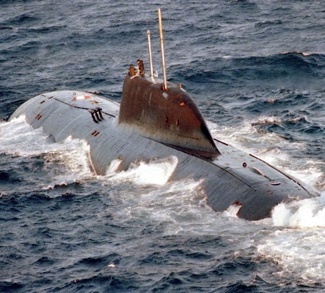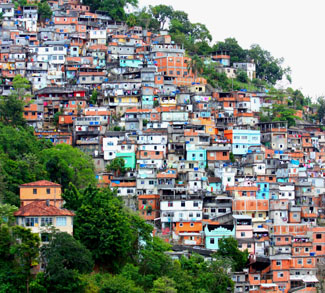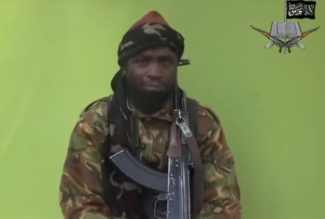FORECAST
With both sides unwilling to budge in official talks, a protracted period of protests, counter-protests, and domestic instability looms over Honduras.
Official talks between ousted President Manuel Zelaya and interim leader Roberto Micheletti ground to a deadlock on Sunday. The proposal that was being tabled – a power-sharing national unity government, general amnesty, and elections in the near future – was deemed unacceptable by the interim government’s delegation. Although mediators have since requested that both sides resume talks in three days time, Mr. Zelaya will undoubtedly be tempted to brave a return to Honduras via land border sometime in the next week.
With the prospects for a negotiated solution looking terminal, both sides can be expected to continue their scramble to secure international and national support for their cause. The Micheletti camp will continue to focus on using Washington insiders and public relations expertise to mitigate fallout from the United States. Mr. Zelaya and his Venezuelan ally Hugo Chavez will also be looking to Washington for help in cutting the interim Honduras government off from the international community.
How the Obama administration chooses to respond to the collapse in negotiations is of the utmost importance to both camps. $16.5 million worth of American military aid has already been suspended; a sanction that can easily be weathered by the Micheletti government. However, if Washington takes the further step of suspending the remaining balance of $180 million in economic assistance, the interim government will experience some possibly ruinous domestic political fallout.
The United States cannot be considered a completely independent arbiter in this situation, as Mr. Zelaya and Hugo Chavez have been some of the most vociferous critics of American policy in Latin America. Interestingly, a lawyer and a public relations specialist, both with ties to Bill and Hillary Clinton, have been hired to lobby on behalf of the Micheletti government.
Washington is thus left with the expedient option of taking a ‘hands off’ approach that is both self-serving and in keeping with the Obama administration’s new policy of non-interference in Latin American domestic politics. Expect American support for Mr. Zelaya to be more rhetorical than substantive in the short-term.
In the absence of international pressure being brought to bear on either side, the conflict will spill out onto the streets. Mr. Zelaya has called on his supporters to strike, march, and engage in civil disobedience; it appears that they are listening. Pro-Zelaya protestors have shut down commercial highways and set up roadblocks in various locations, forcing the interim government to re-institute a late-night curfew. There have also been frequent pro-coup protests.
While the crisis will not descend into the civil war that Hugo Chavez fears, it is likely that normal democratic politics in Honduras will be overwhelmed by militant protest movements, similar to the political crisis in Thailand. One critical difference between Honduras and Thailand however is Mr. Zelaya’s determination to return. Zelaya’s return to Honduras will almost definitely result in his arrest and risks the subsequent radicalization of his followers. Pro-Zelaya protestors have so far avoided becoming the victims of large scale violence at the hands of security forces, but this can quickly change. President Zelaya’s return may open the door for large-scale violent clashes between protestors and security forces.
An escalation in street violence would force President Obama’s hand. The administration would be left with no choice but to use all available leverage to force both sides to come together in a national unity government.
SUMMARY OF EVENTS: July 13 – 20, 2009
NORTH AMERICA
Mexico
The powerful “La Familia” drug cartel has unleashed one of the most spectacular murder offensives in recent years against Mexican authorities, boldly targeting President Felipe Calderon’s home state.
United States
A secret intelligence program canceled by CIA Director Leon Panetta in June was meant to find and then capture or kill al-Qaida leaders at close range rather than target them with air strikes that risked civilian casualties, government officials with knowledge of the operation said Monday.
In an effort to thwart a federal investigation of the Bush administration’s warrantless surveillance program, five former senior Bush administration officials refused to cooperate with investigators, among them former Bush chief of staff Andrew Card and Attorney General John Ashcroft.
In a blow to the notion of meritocratic government, applicants to the Justice Department’s internships and Honors Program were widely rejected if their resumes included the names of liberal groups on a departmental blacklist, the Washington Blade reported Wednesday.
The CIA’s secret assassination squad was allowed to operate anywhere in the world, including the United States, according to a Thursday report in The Washington Post.
CENTRAL AMERICA AND THE CARIBBEAN
Honduras
Deposed Honduran leader Manuel Zelaya called for a popular insurrection in his country Wednesday so he can be returned to power after soldiers removed him at gunpoint on June 28.
Thousands of supporters of ousted Honduran President Manuel Zelaya blocked roads Friday amid talk their leader would soon return — a move opposed by the United States, calling for focus on talks to resolve the crisis.
SOUTH AMERICA
Bolivia
Bolivian President Evo Morales has accused the United States of being behind the military coup in Honduras, Latin American media reported on Tuesday.
Ecuador
Ecuadorian President Rafael Correa never received funds from Colombian rebel group FARC, his government said on Friday as he sought to refute the content of a video aired on Colombian television.
WESTERN EUROPE
Britain
A group of doctors in the UK are mounting a legal and political campaign to overturn the suicide verdict in the death of a British doctor who was found dead shortly after exposing falsehoods about the justification for the Iraq war.
EASTERN EUROPE
Russia
Russian President Dmitry Medvedev said on Tuesday he hoped Georgia had learned its lesson and would not make any more attempts to retake its rebel provinces South Ossetia and Abkhazia.
A prominent human rights activist was found dead after being kidnapped in Russia’s troubled republic of Chechnya Wednesday, provoking outrage from President Dmitry Medvedev and the international community.
A Russian human rights group has blamed Ramzan Kadyrov, Chechnya’s Kremlin-backed president, for the kidnap and murder of an award-winning activist.
MIDDLE EAST
Iran
An Iranian government newspaper said on Monday a detained local employee of the British embassy played a key role in post-election unrest last month and his arrest shed new light on Britain’s “subversive activities.”
Thousands of supporters of Iran’s defeated presidential candidate Mir-Hossein Mousavi demonstrated in Tehran on Friday after a powerful cleric delivered a sermon casting doubt on the recent election.
Israel
More than two dozen Israeli soldiers who fought in the Gaza war say the military forced Palestinians to serve as human shields and used reckless firepower that caused needless deaths, according to a report released Wednesday.
EAST ASIA
China
Chinese investigators have questioned executives at several steel mills in a widening probe of alleged leaks of state secrets to Australian iron ore supplier Rio Tinto, Chinese media said on Tuesday.
China on Tuesday dismissed Turkey’s accusation of genocide in its northwestern Muslim region of Xinjiang, where rioting killed 184 people, mostly majority Han Chinese.
Australia and China traded warnings on Thursday over Rio Tinto employees detained for spying, as the United States urged Beijing to ensure transparency and fair treatment for staff of foreign companies.
South Korea
A Vietnamese computer security firm believes Britain was the likely origin of last week’s cyber attacks that crippled major US and South Korean websites, Seoul officials said Thursday.
SOUTH ASIA
Indonesia
Bombs ripped through two luxury hotels in the heart of Indonesia’s capital on Friday, killing eight people and wounding dozens in an attack the president said would damage confidence in Southeast Asia’s biggest economy.
Pakistan
The UN commission set up to investigate the assassination of Pakistani former prime minister Benazir Bhutto warned Friday it was limited to fact-finding and would not point to “smoking guns”.
AFRICA
Chad
Chadian aircraft launched an air raid inside Sudanese territory on Thursday, days after reports the countries were planning reconciliation talks, Sudanese state media reported.
Republic of Congo
Several candidates in the Republic of Congo on Thursday contested election results that saw President Denis Sassou Nguesso sweep back to power with an overwhelming majority.
Nigeria
Nigerian rebels took their ‘oil war’ with the government into Lagos, killing at least five people in their first ever attack on Africa’s biggest city, officials said on Monday.
Zachary Fillingham is a contributor to Geopoliticalmonitor.com



